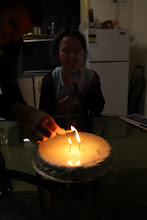On one sentence by Jean-François Lyotard.
Lyotard, Jean-François. “Answering the Question: What is Post Modernism?” Trans Richard Durand The Postmodern Condition: A Report on Knowledge. Trans. Geoff Bennington and Brian Massumi. Minneapolis: University of Minnesota Press, 1984.
An unnamed lecturer recently commented that 350 words might easily be written on any one sentence of Jean-François Lyotard’s. Lyotard emerges from the cannon of ‘French or other’ (73) philosophers and has in common with others in this cannon a density and complexity of ideas within a short piece of writing. One such sentence is Lyotard’s statement that ‘capitalism inherently possesses the power to derealise familiar objects, social roles, and institutions to such a degree that the so called realistic representations can no longer evoke reality except as nostalgia or mockery, as an occasion for suffering rather than satisfaction’ (74). In fact, were somebody so inclined, they could probably write a thesis on this particular tightly packed and fancy-schmancy (yes, that is in the dictionary) sentence. 350 words are perhaps only enough to offer a few suggestions toward deciphering what Lyotard is getting at in this sentence.
Upon closer inspection the derealisation of familiar objects (74) is actually itself a familiar concept. Although Lyotard does not reference Freud, it seems to echo Freud’s often quoted discussion of the uncanny. Freud suggests that the German counterparts of the word uncanny; heimlich (meaning roughly “homely”) and unheimlich (“unhomely”) have the meaning of their opposite buried within them. Anthony Vidler clarifies; the sense of the uncanny is created by an invasion of the unfamiliar by the familiar, and even more so, by the sense of the familiar, the homely, made strange (26). In this passage, Lyotard, coming from a Marxist background, rather than finding the source of the derealisation of objects buried within the psyche, instead points the finger of blame squarely upon the power of capitalism, or at a pinch, suggesting that capitalism has engineered a shift in psyche, stirring this phenomena from within.
A specific example of the derealised ‘social roles, and institutions’ that spur a reality that conjures only mocking nostalgia might be found in Pierre Nora’s article ‘Between Memory and History: Les Lieux de Mémoire’. Nora discusses the idea that modernity has brought about a significant shift in the way that memory and time are configured and collected. This shift is specifically the suppression of collective memory, which is ‘social and unviolated’, by history, which Nora describes as ‘how our hopelessly forgetful modern societies, propelled by change, organise the past.’(8) Nora illustrates that with the handing down and sharing of collective memory came pre-established methods that ‘prepared a smooth passage from the past to the future’(7). From the perspective of the present moment, both future and past, which were formally ‘visible, predictable, manipulable well-marked extension[s] of the present – [have] come to seem invisible, unpredictable, uncontrollable.’(17) One might argue, in the context of Lyotard’s sentence, history as a type of social role and institution offers a reality that is dislocated, painful and unsatisfying in comparison with collective memory.
Works Cited
Lyotard, Jean-François. “Answering the Question: What is Post Modernism?” Trans Richard Durand The Postmodern Condition: A Report on Knowledge. Trans. Geoff Bennington and Brian Massumi. Minneapolis: University of Minnesota Press, 1984.
Nora, Pierre., ‘Between Memory and History: Les Lieux de Mémoire’ Representations, No. 26 (Special Issue, Memory and Counter-Memory) 1989, pp.7-24
Vidler, Anthony. The Achitectural Uncanny: Essays in the Modern Unhomely. Cambridge, Mass: MIT Press, 1992
Subscribe to:
Post Comments (Atom)

1 comment:
I sort of felt that the text was so dense it became vague (does that make sense?) and as I was writing my response, my thoughts kept unravelling on themselves. Your approach, I think, was a very good one and it was nice to think about Freud's concept of the unhiemlich again through the voice of Vidler and how it could manifest itself somewhat differently here through the Marxist vein in Lyotard's writing.
Post a Comment